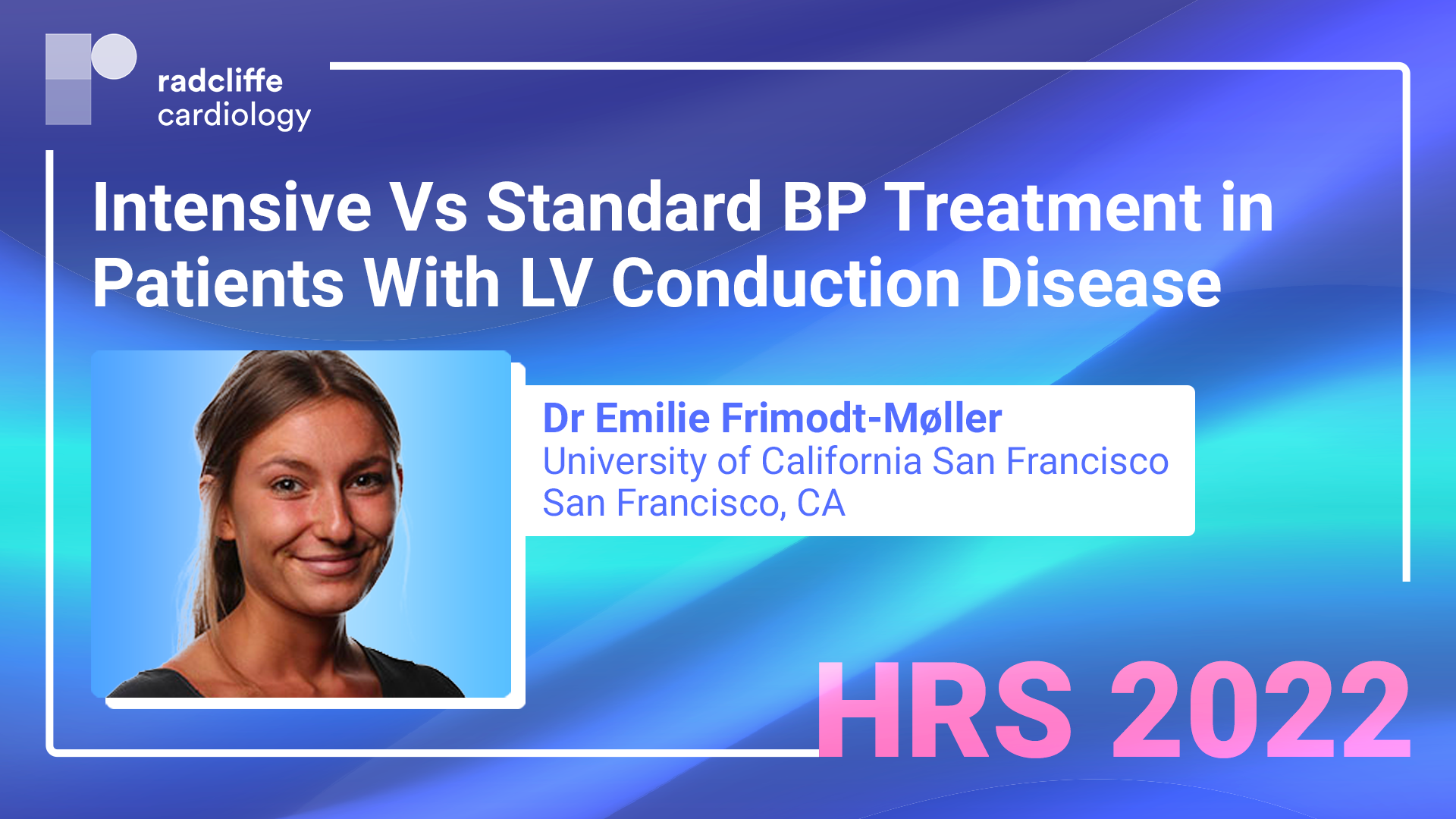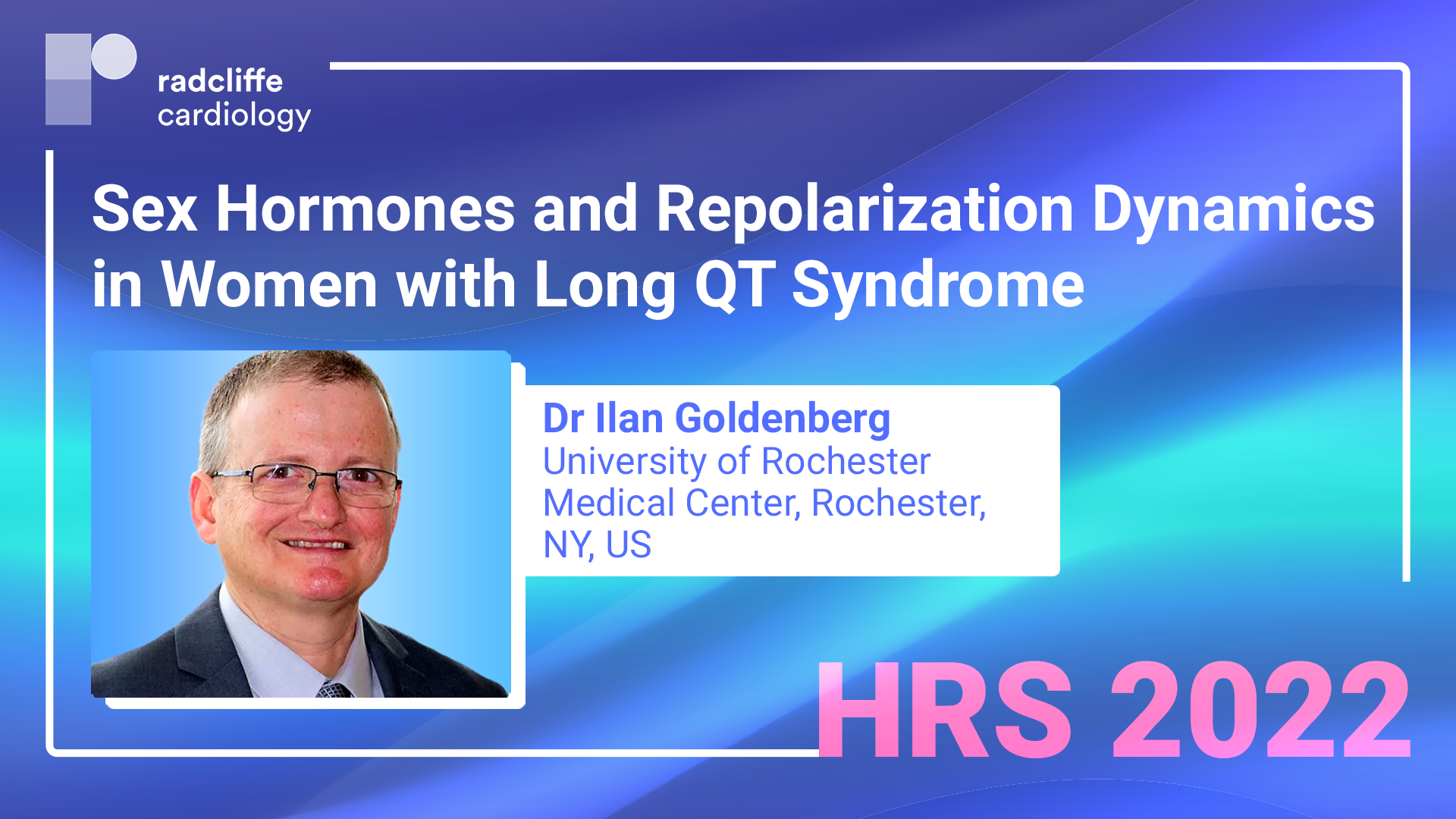- So my name is Emilie Frimodt-Moller. I'm a medical student from University of Copenhagen in Denmark, and is currently holding a position as a junior research specialist at University of California, San Francisco. I'm here to present or talk about this study, 'Effect of Intensive versus Standard Blood Pressure Treatment on Incident Left-Ventricular Conduction Disease'.
Aim, study design and endpoints
Yeah, so, a little background of the study is that we know that cardiac conduction disease can lead to poor outcome, including heart failure and eventually death, but the prevention of cardiac conduction disease is still not part of cardiac care. And I think the reason for that is that we actually don't know how to prevent it or even if we can prevent it. So right now, the way we think about conduction disease is that it's not a modifiable outcome but more like it's just bad luck for the patients. So previous studies, which have all been observational, they have found a common predictor of conduction disease, which is hypertension. And this is especially associated with left-ventricular conduction disease. So that is fascicular and left bundle branch block. So we thought that if hypertension can increase the risk of left-ventricular conduction disease, then maybe we can prevent the development of left-ventricular conduction disease by a more aggressive blood pressure control. So the aim of this study was to test that hypothesis, and then we were very lucky to be able to use data from the SPRINT trial, which was a two multi-center randomised clinical trial that randomised hypertensive individuals to receive either a standard blood pressure treatment for a systolic blood pressure target below 140 millimetre mercury or an intensive treatment for a systolic target below 120 millimetre mercury.
Main findings
So our endpoint was left-ventricular conduction disease which is fascicular bundle branch block and left bundle branch block. Yes, so our main findings was that the participants randomised to an intensive blood pressure control had a 26% lower risk of developing left-ventricular conduction disease. And this was very consistent across all of our analysis and also when we considered all-cause death as a competing risk. Another quite interesting finding was that the risk of right bundle branch block did not differ between the treatment groups. So that was kind of a negative control to our main findings.
Patient eligibility
Of course, we cannot generalise these findings to all patient populations. We do have some limitations with that. We didn't look at patients who already had left-ventricular conduction disease. All of our patients, they were free of left-ventricular conduction disease at baseline but I don't see any reasons for not to think of this patient group as being able to benefit from a more aggressive blood pressure control.
Take-home messages
I think our take-home message is that the way we see conduction disease, first of all, a take-home message is that we saw a high reduction in left-ventricular conduction disease by more aggressive blood pressure treatments, and the way we see conduction disease should not be that it's just bad luck for the patient but that it actually is a modifiable outcome that is susceptible to prevention strategies.
Next Steps
I think there are a couple of next steps but what's very important is to continue looking into modifiable risk factors of conduction disease, since hypertension is likely only one among other risk factors that we can actually modify and therefore try to prevent conduction disease. But it would also be very important to identify the individuals who is at highest risk of developing left-ventricular conduction disease so that we can identify the individuals who would benefit the most from a prevention strategy with least harm.
HRS 2022: Late-Breaking Science Video Collection
Published: 11 May 2022
-
Views:
 1478
1478
-
Likes:
 7
7
-
Views:
 1478
1478
-
Likes:
 7
7
-
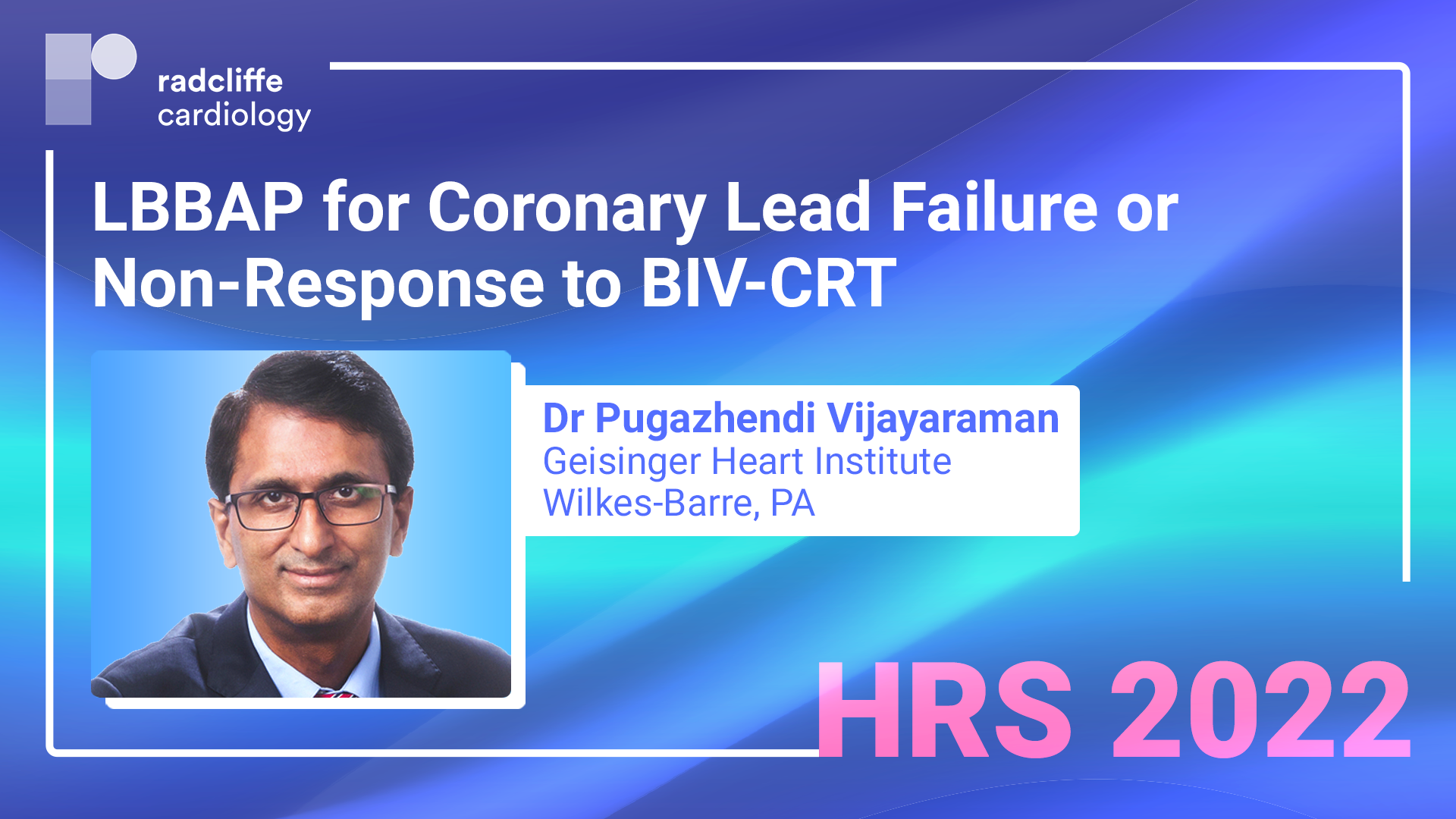 4m 21sPart 1 | Session 1 HRS 22: LBBAP for Coronary Lead Failure or Non-Response to BIV-CRT Pugazhendhi Vijayaraman
4m 21sPart 1 | Session 1 HRS 22: LBBAP for Coronary Lead Failure or Non-Response to BIV-CRT Pugazhendhi Vijayaraman
-
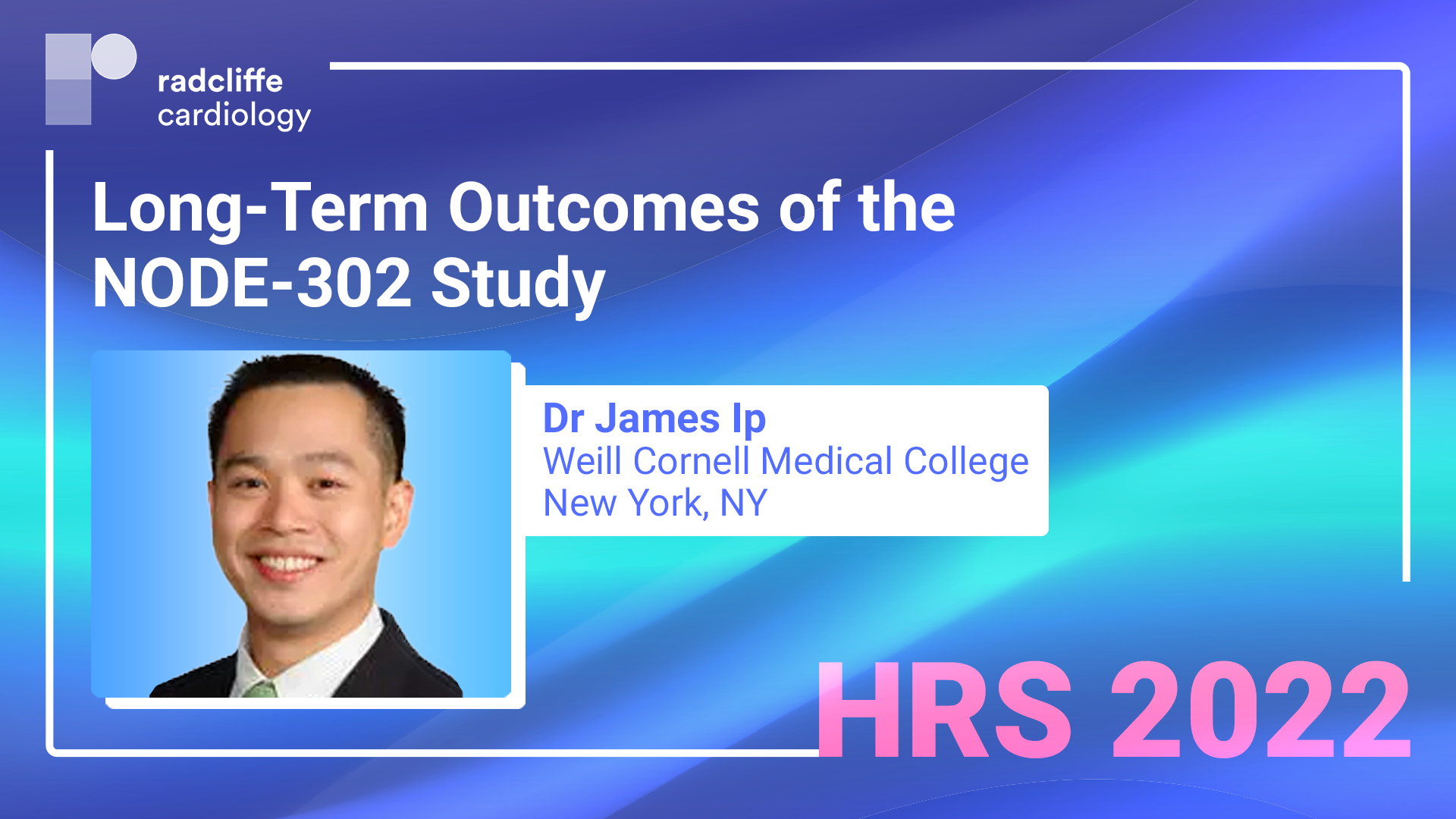 2m 38sPart 1 | Session 2 HRS 22: Long-Term Outcomes of the NODE-302 Study James Ip
2m 38sPart 1 | Session 2 HRS 22: Long-Term Outcomes of the NODE-302 Study James Ip
-
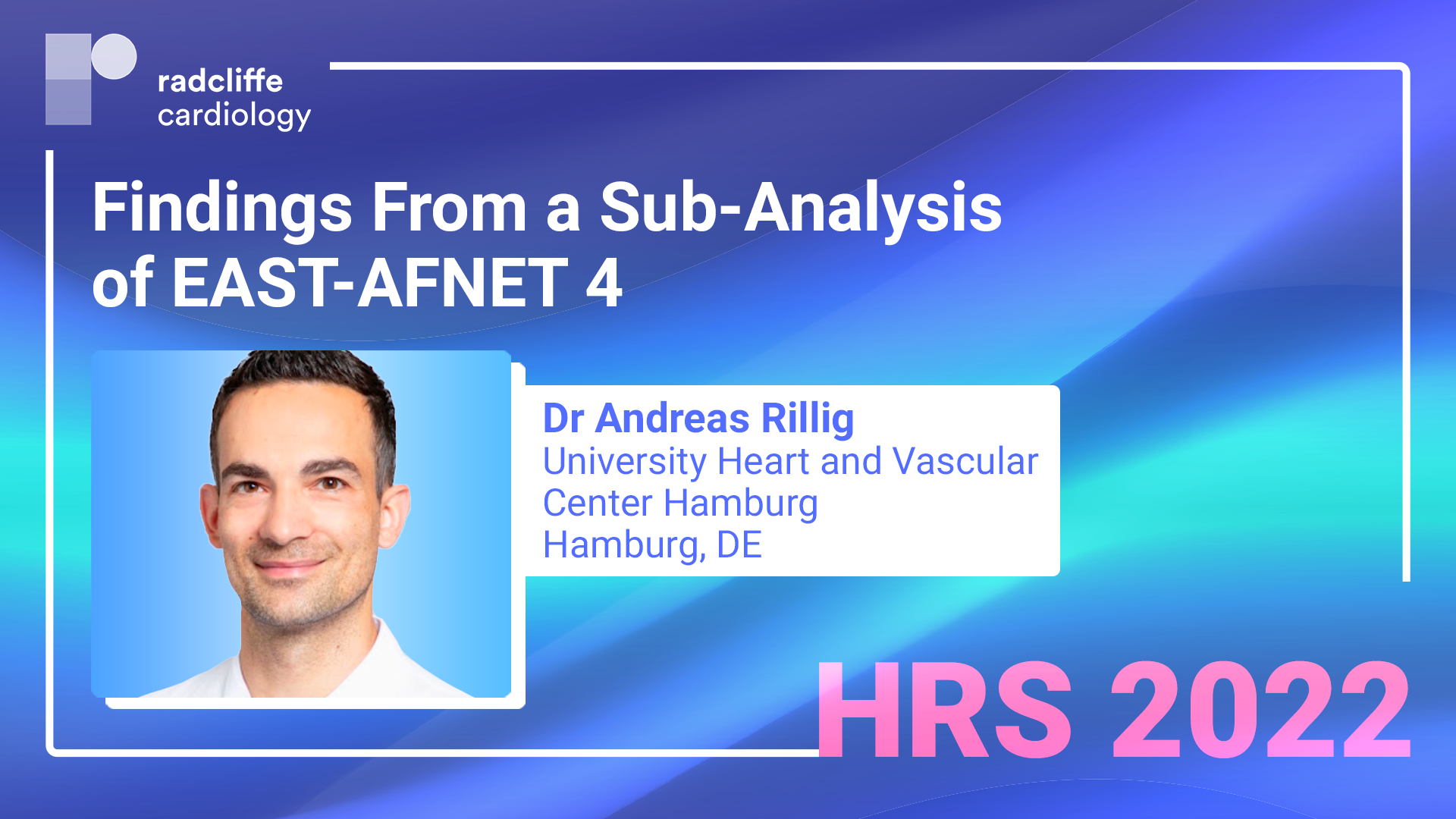 7m 47sPart 1 | Session 3 HRS 22: Findings From a Sub-Analysis of EAST-AFNET 4 Andreas Rillig
7m 47sPart 1 | Session 3 HRS 22: Findings From a Sub-Analysis of EAST-AFNET 4 Andreas Rillig
-
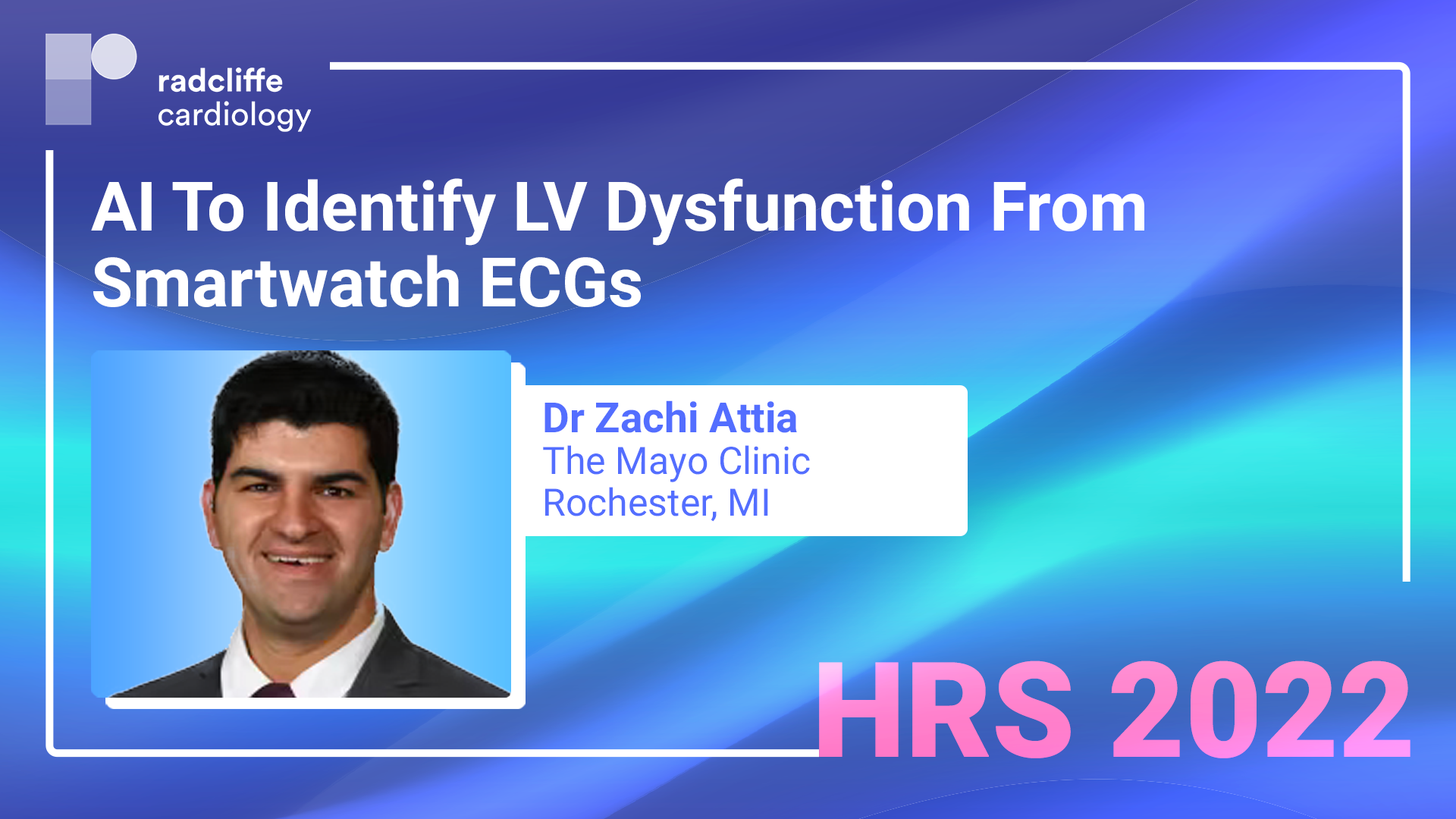 6m 18sPart 1 | Session 4 HRS 22: AI To Identify LV Dysfunction From Smartwatch ECGs Zachi Attia
6m 18sPart 1 | Session 4 HRS 22: AI To Identify LV Dysfunction From Smartwatch ECGs Zachi Attia
-
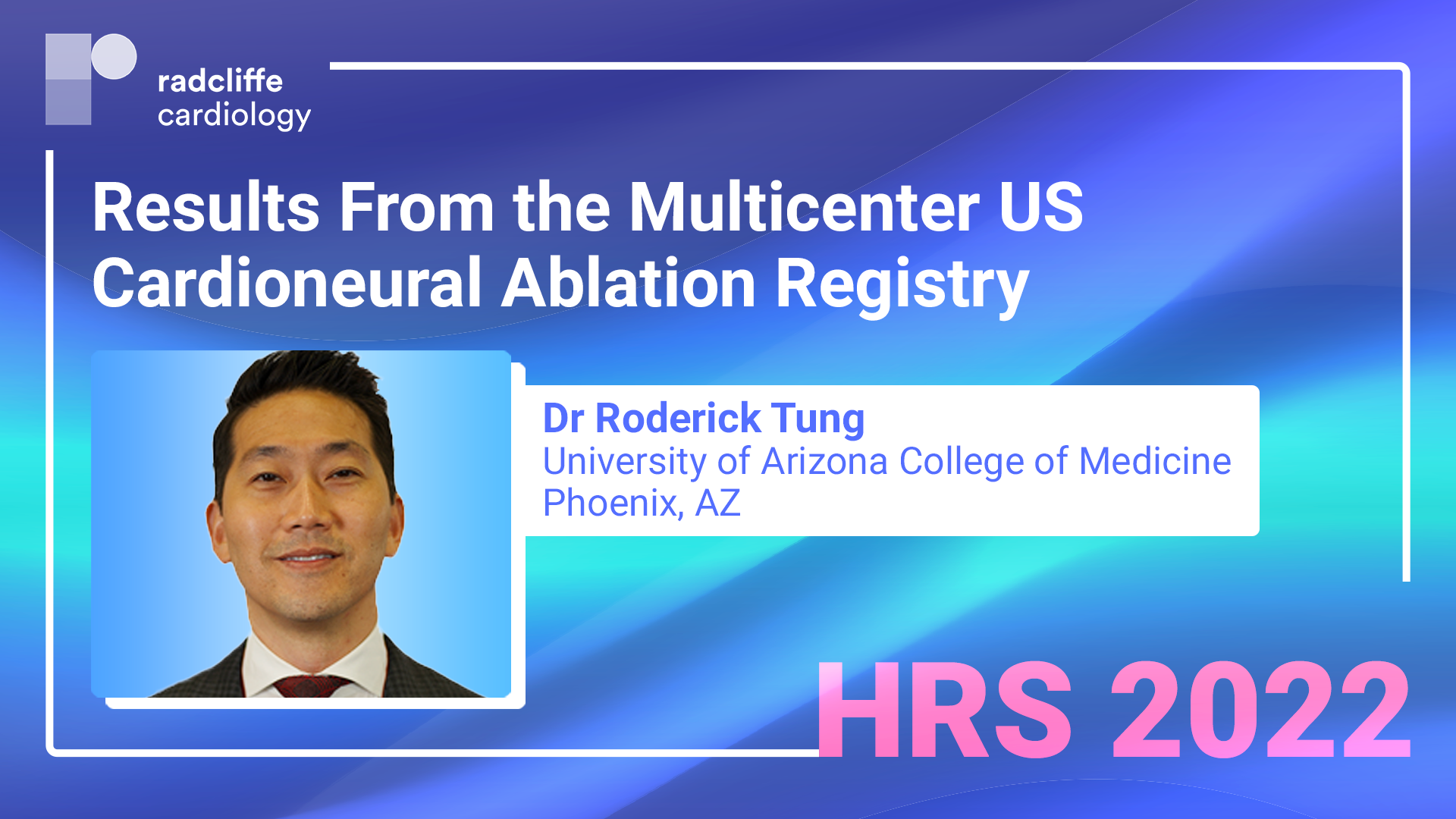 5m 33sPart 1 | Session 5 HRS 22: Results From the Multicenter US Cardioneural Ablation Registry Roderick Tung
5m 33sPart 1 | Session 5 HRS 22: Results From the Multicenter US Cardioneural Ablation Registry Roderick Tung
-
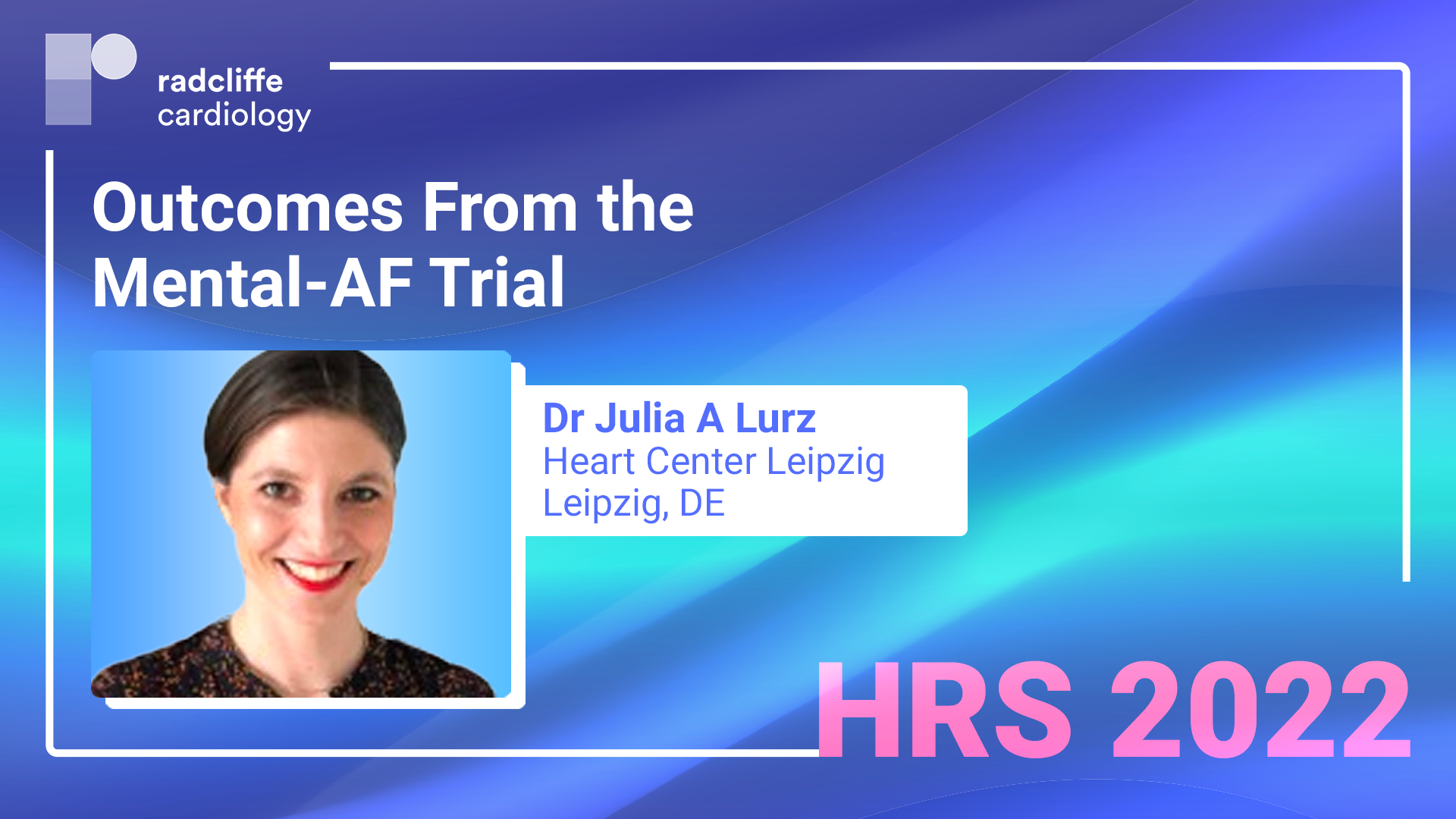 6m 35sPart 1 | Session 6 HRS 22: Outcomes From the Mental-AF Trial Julia Lurz
6m 35sPart 1 | Session 6 HRS 22: Outcomes From the Mental-AF Trial Julia Lurz
-
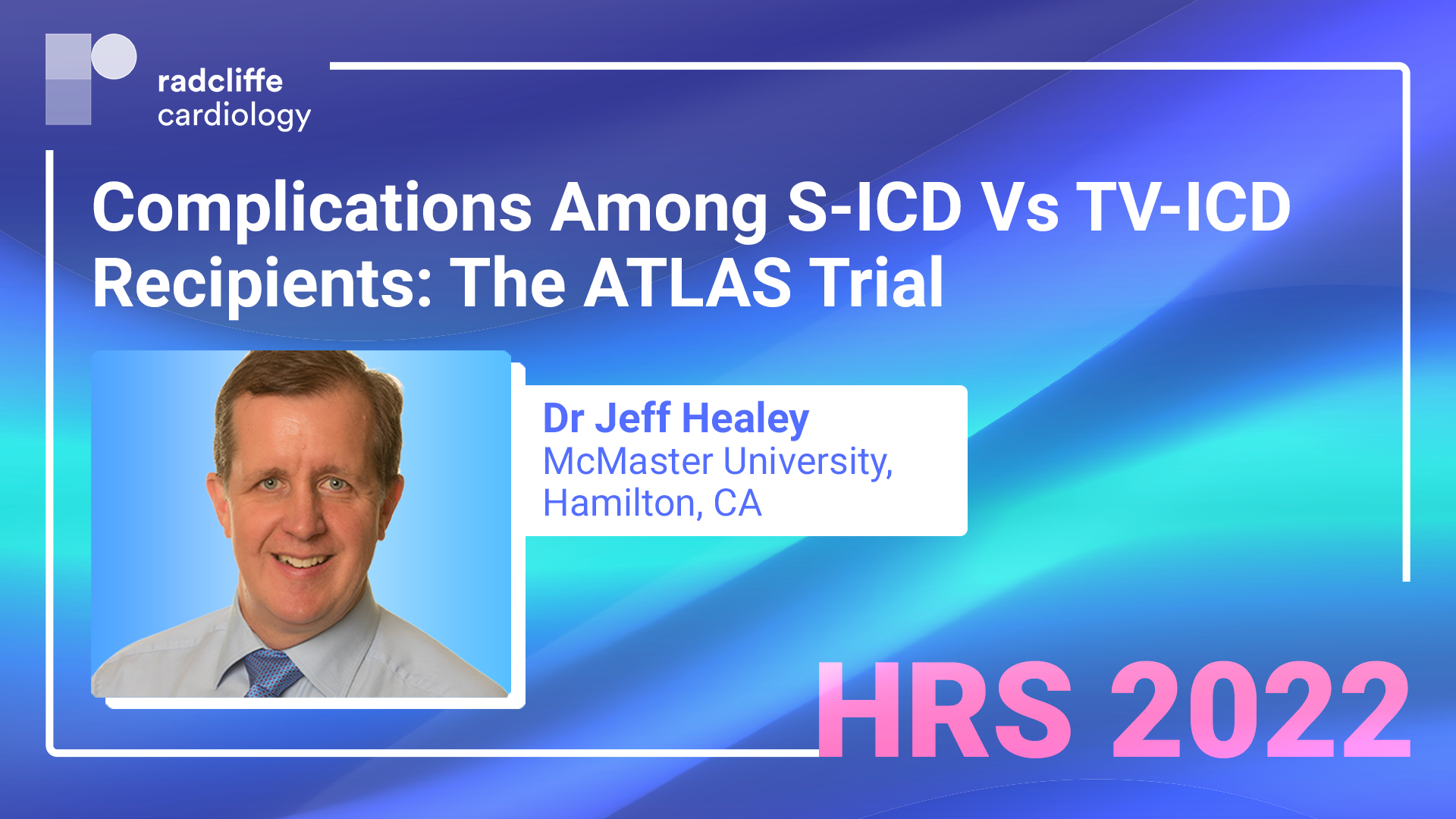 12m 12sPart 1 | Session 7 HRS 22: Complications Among S-ICD Vs TV-ICD Recipients: The ATLAS Trial Jeff Healey
12m 12sPart 1 | Session 7 HRS 22: Complications Among S-ICD Vs TV-ICD Recipients: The ATLAS Trial Jeff Healey
-
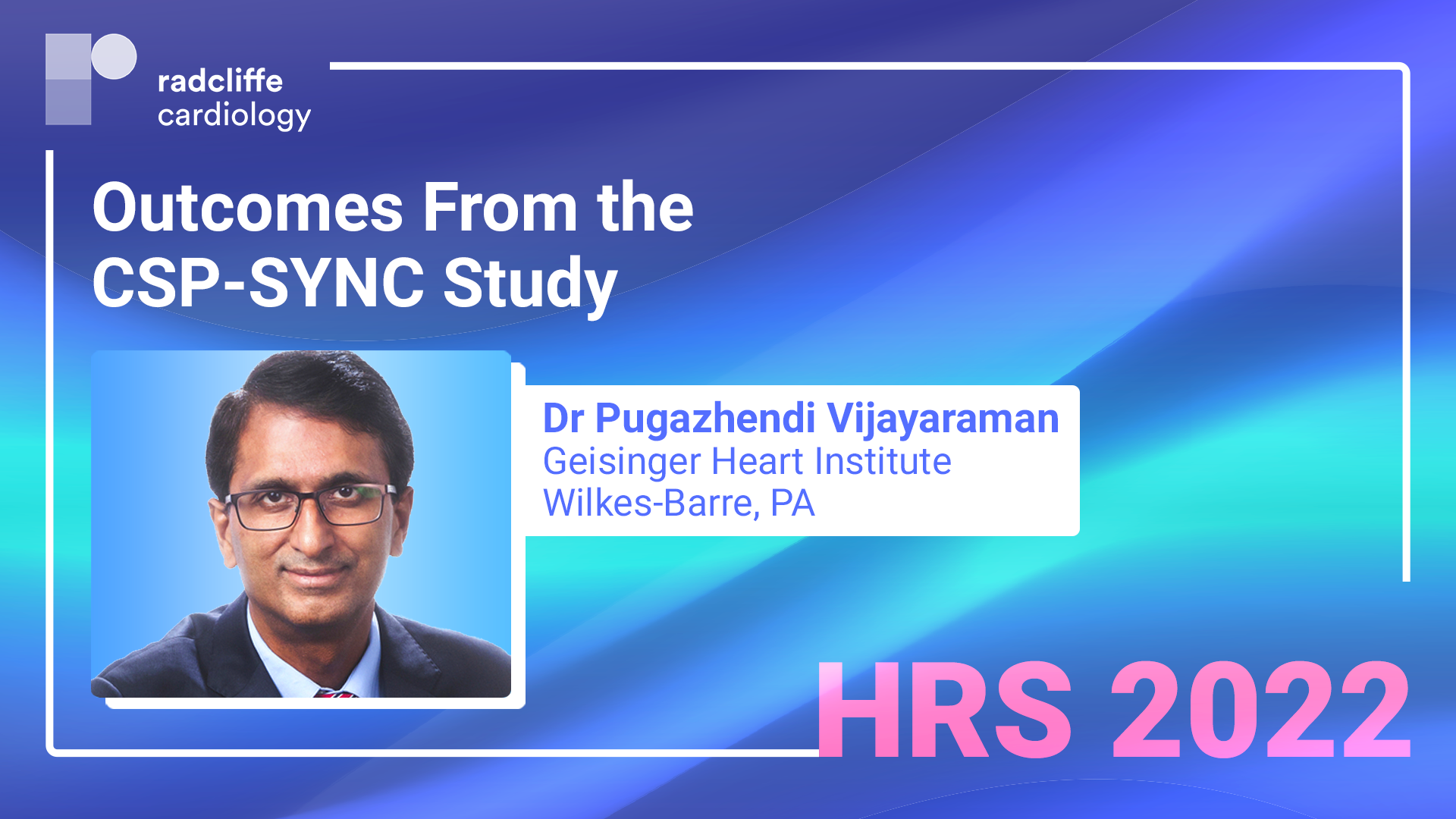 4m 4sPart 1 | Session 8 HRS 22: Outcomes From the CSP-SYNC Study Pugazhendhi Vijayaraman
4m 4sPart 1 | Session 8 HRS 22: Outcomes From the CSP-SYNC Study Pugazhendhi Vijayaraman
-
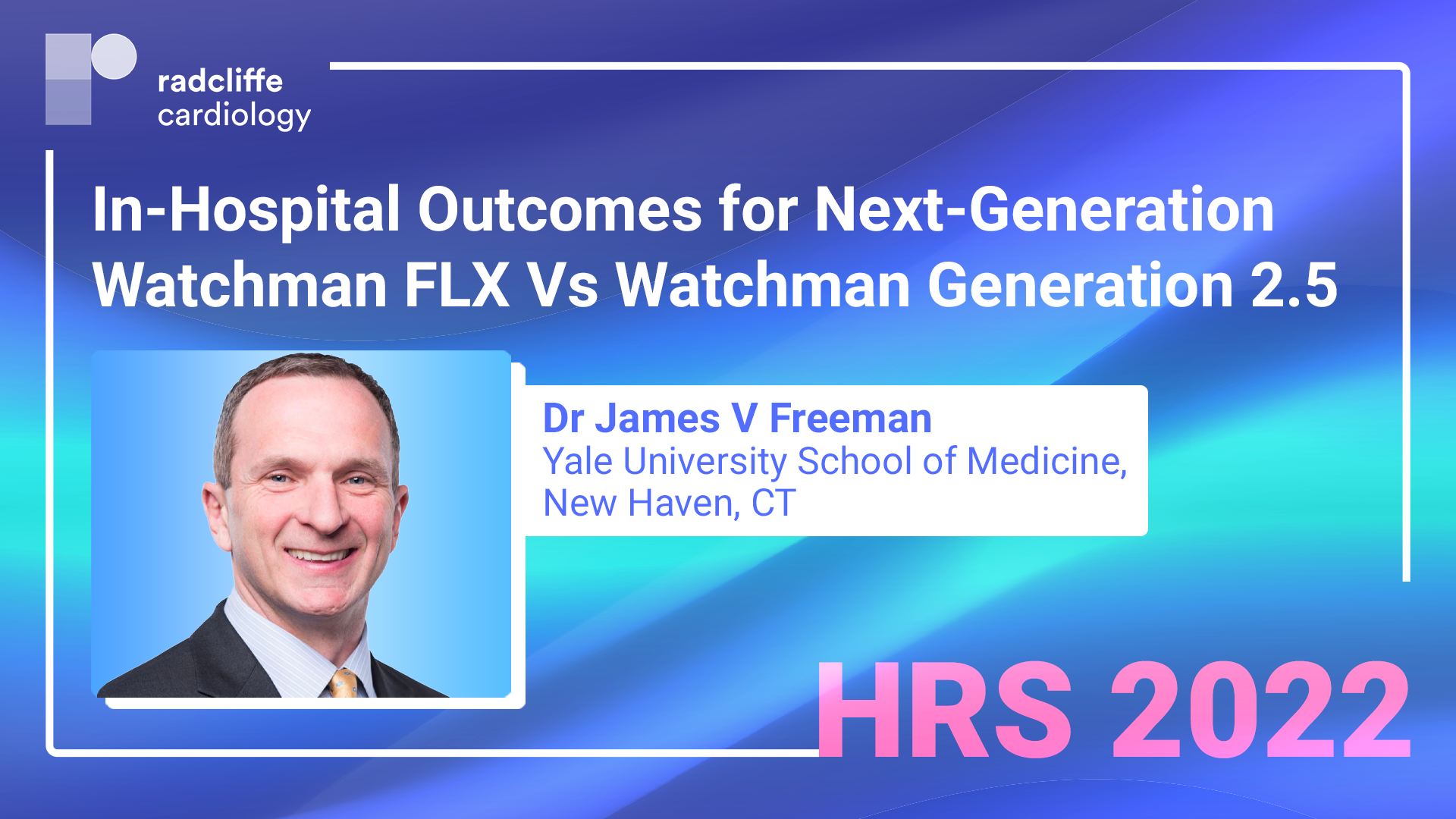 6m 53sPart 1 | Session 9 HRS 22: In-Hospital Outcomes for Next-Generation Watchman FLX Vs Watchman Generation 2.5 James Freeman
6m 53sPart 1 | Session 9 HRS 22: In-Hospital Outcomes for Next-Generation Watchman FLX Vs Watchman Generation 2.5 James Freeman
Overview
Short, accessible expert interviews were conducted at HRS 2022 with select faculty focusing on the results, applicability, and impact on future research.
More from this programme
Part 1
Expert Interviews
Faculty Biographies
Transcript






